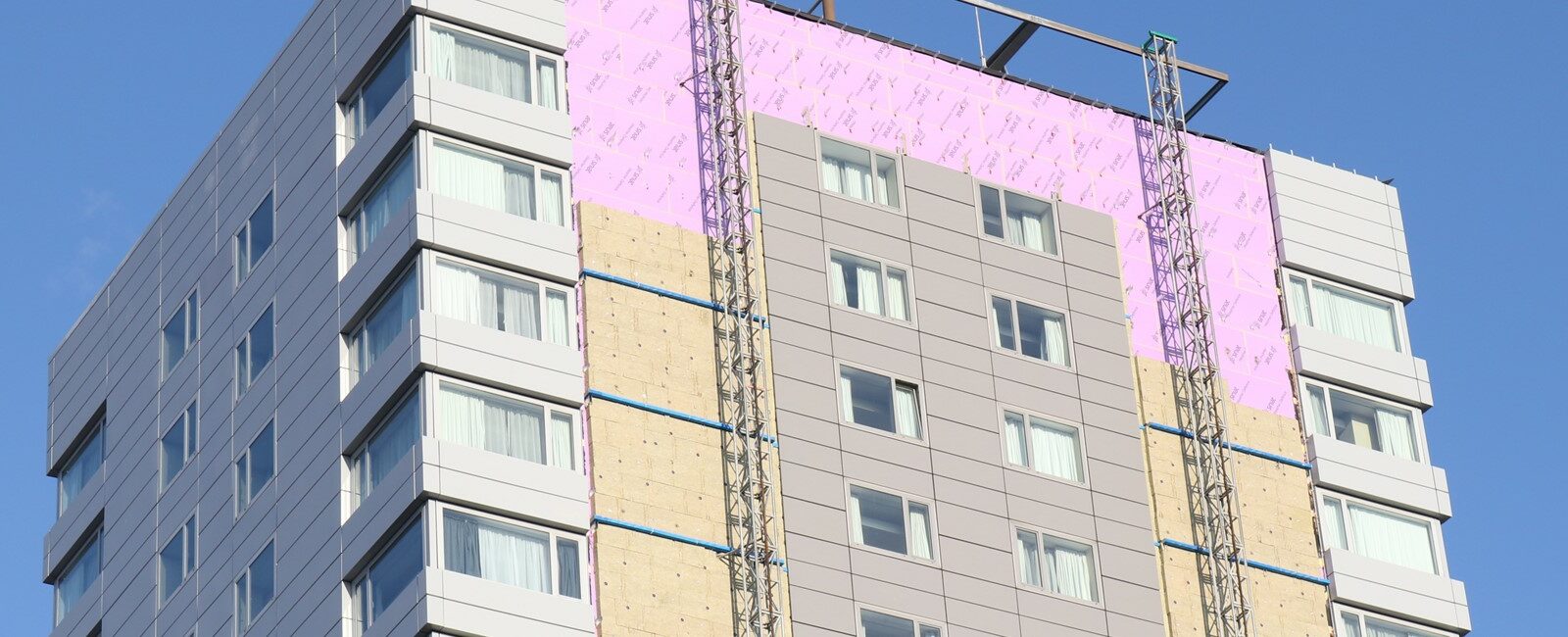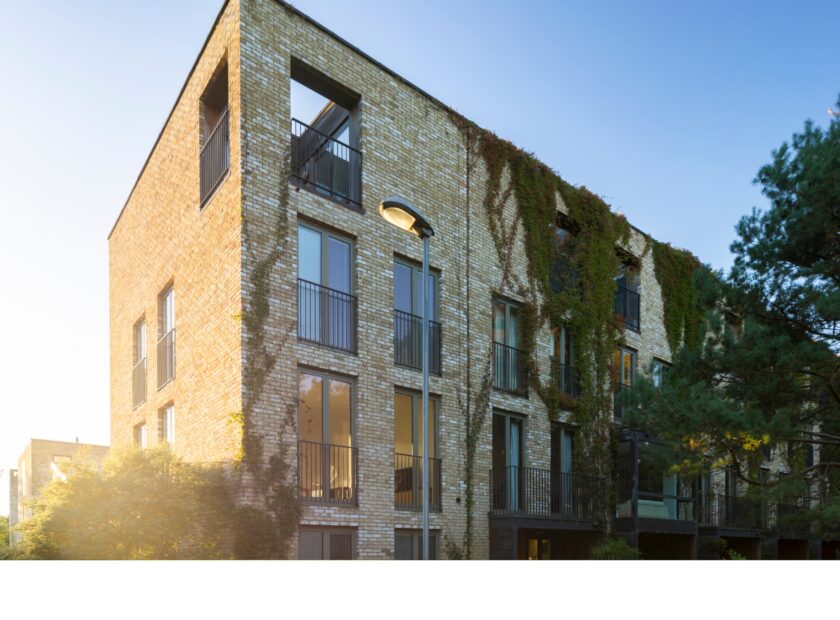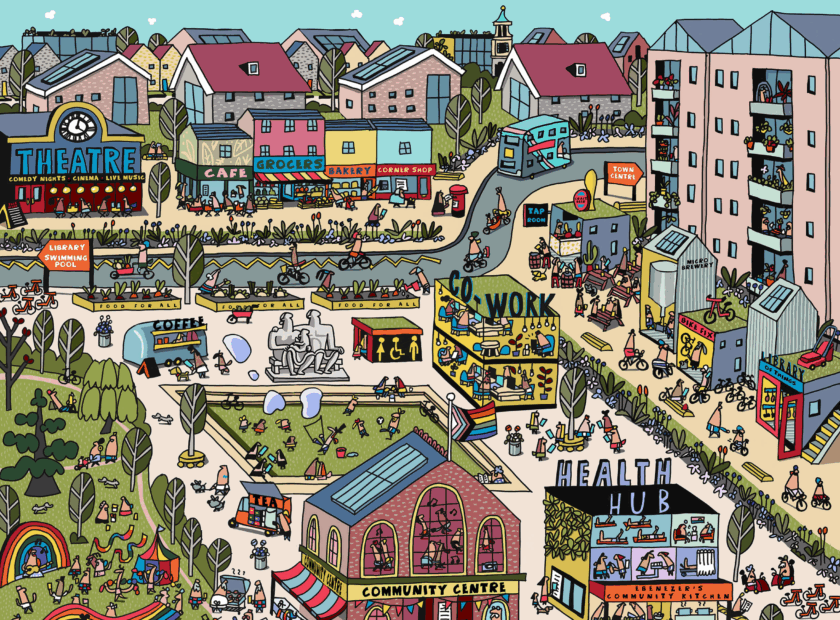‘But what is the point in us?’ – Democracy is a non-negotiable part of planning. Squeezing it out carries substantial risks, including potentially unprecedented direct action.
During the two weeks which have followed the publication of the White Paper I have had many intense conversations about what it really adds up to and whether government might listen to people’s real concerns about the impact of these radical changes to planning.
While the TCPA has been vocal about our concerns around the proposals in the Paper, we have also acknowledge that change is necessary and that there are some elements we can welcome. Standardising digital data and the appointment of chief officers for design, for example. But these moments do not take away from the striking failure of the White Paper to create a coherent and workable system that is fit for our future. The job of the TCPA is to try to explain these proposals to the wider public. This job is extremely difficult given the lack of clarity on key aspects of the proposals. From Section 106 agreements, to the scope and status of neighbourhood planning, there is a great deal the government will have to clarify if meaningful debate on the future of planning is to happen in a positive and constructive atmosphere. I am personally very sceptical about those calling for us to give the White Paper the ‘benefit of the doubt’. After all this is a White Paper, and that normally implies a level of rigour and precision in describing the proposals. The government could help us all by providing clear assurances on the long list of legitimate concerns which the proposals have raised.
But one set of concerns stands out from the rest and those are being raised by many communities and local councillors across the political spectrum who are trying to grapple with the reform agenda. These concerns were best distilled in a conversation with one elected local authority member, new to planning, who asked me a simple question. ‘After all these reforms have been implemented what will be the point of local planning authorities? What are we going to control? The colour of the guttering?’
The TCPA is one of the strongest proponents for reforms of the current planning system. We have consistently set out the kinds of changes that are needed and how they can be carefully constructed to increase accountability in the existing planning system. But the question from the district councillor is worth taking head on. Was she right that local democratic oversight is now pointless?
The answer is in three parts: first, it is clear that many of the problems of the current planning system stem from the endless and ad hoc deregulation of planning over the last decade. Here the trend has been one of centralization through the use of national policy to reduce the discretion of local authorities on issues such as housing, onshore wind and fracking.
The second is the more direct removal of control through the expansion of permitted development, which completely bypasses democratic scrutiny. This system has just been expanded and is likely to be extended still further. With the extension of permitted development to demolition and rebuild and the deregulation of the use class order local authorities have no democratic control over most of the development which takes place in urban areas. This loss of democracy is not a speculation – it is a direct result of the governments reforms to the existing planning system which have been taken forward prior to the White Paper being published.
Finally, the White Paper extends this trend of centralization and loss of local control in ways described in detail in last week’s blog. More detailed reading of the White Paper has only served to increase the anxiety about the loss of rights to be heard in person at plan enquiries, the removal of democratic accountability of planning applications in growth zones, the centralization of development management policy, nationally prescribed guidance on design codes and finally the failure to introduce a single new measure to ‘democratise planning’. Even neighbourhood planning, has an unclear role within the future system. Despite the White Paper stating that the government ‘thinks’ they should be retained. From our reading of the proposals, there is a real lack of clarity about the scope and power of such plans in decision making . This flagship of community planning appears to have been marooned by the White Paper.
I don’t believe that local planning authorities are pointless, but there is no doubt they have been stripped of most of the powers that would enable them to make better places for people. While the White Paper states the reforms will ‘free up planners’ to create ‘great communities’ and undertake ‘proactive place-making’ [paragraph 5.10], the specific proposals will leave planning authorities with the residual role to designate zones and fixed design codes. So far as they deal with traditional development management in the protected zones, these decisions will be based solely on national planning guidance. Local politicians will be marginalised and planners will become little more than traffic wardens for land. But in reducing what little real democracy planning decisions have now, the White Paper risks fatally undermining what’s left of the legitimacy of the planning system. That in turn will lead to a new generation of direct action by communities who believe that planning should be accountable and that their voice must be heard.
Local democracy doesn’t always work well for planning but the alternative is much, much worse. Local government doesn’t always make decisions that I personally like but it’s overwhelmingly best placed to deliver change on the ground that is in the best interests of the public. Democracy must be enhanced not reduced and local councils must take back control of their planning powers. That requires a fundamental change of direction in the governments planning reform agenda.




